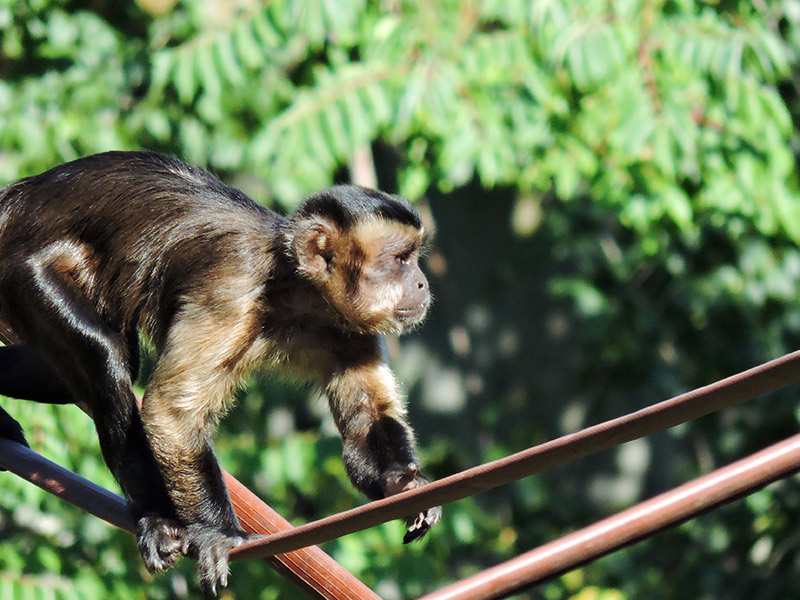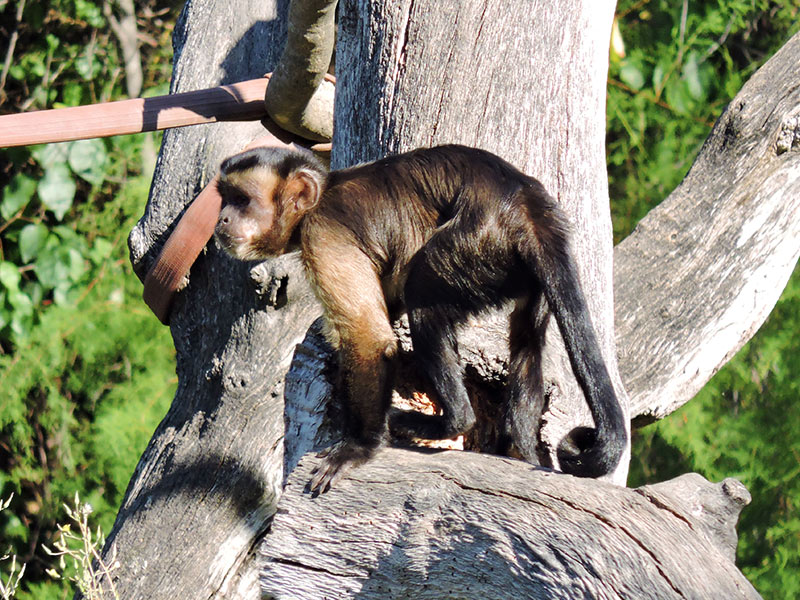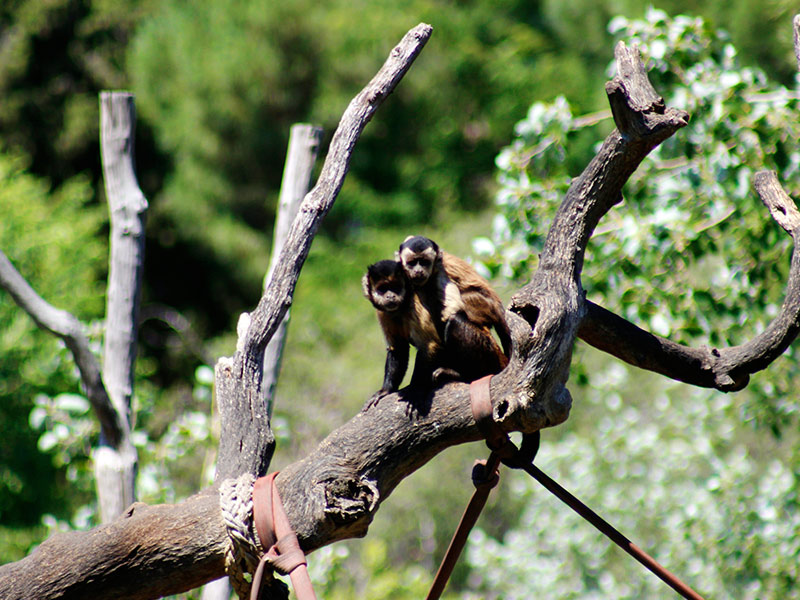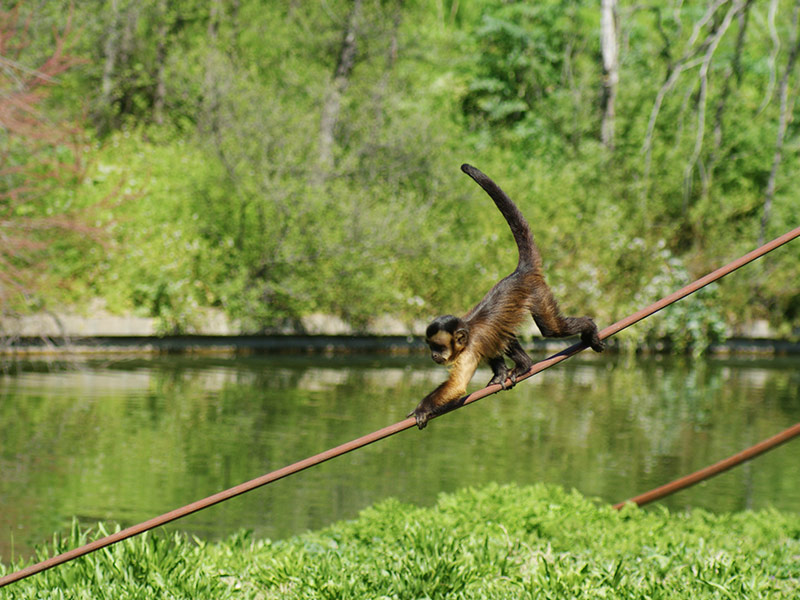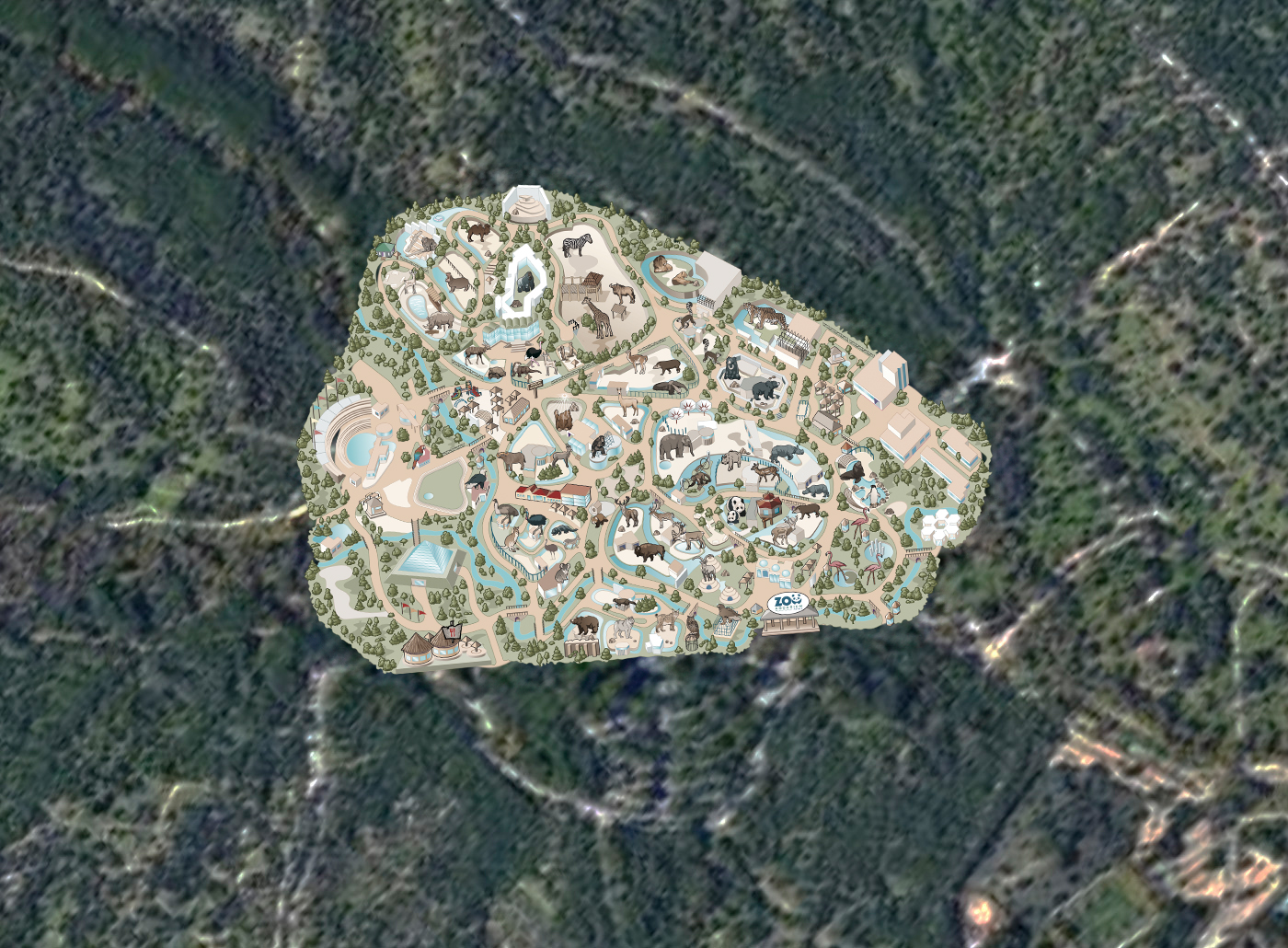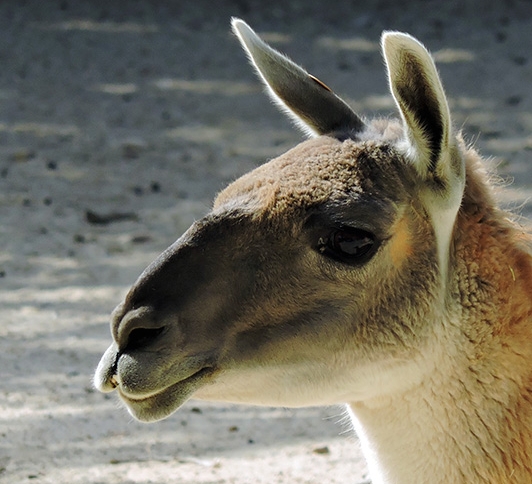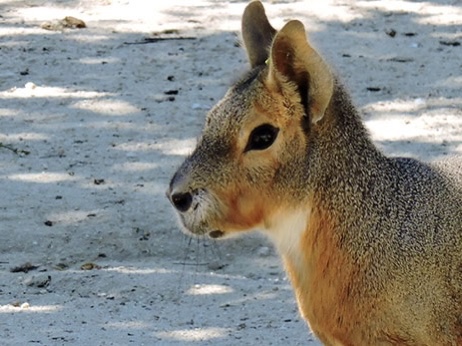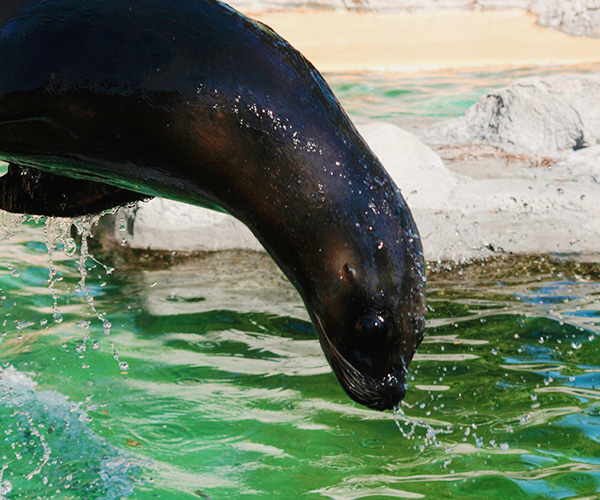It can only be found in South America, although there are several countries where it is distributed: Colombia, Ecuador and Peru among them. It can be said that the Capuchin Monkey is the most widely distributed primate species in the neotropics.
It adapts to different habitats and ecosystems, and has different characteristics from those of its African relatives (among them the nose, in which its very open nostrils stand out). Its long prehensile tail allows it to feed, move and swing in trees, where it prefers to stay most of the time. Although it usually supports itself on all four limbs, this monkey is capable of adopting a bipedal posture.
Capuchin monkeys live in organized groups led by one or more males. The communities consist of a variable number, from three to thirty individuals (between adult males and females, juveniles and young). They are very close-knit and cooperate with each other, under a hierarchy that governs their behavior: for example, while the dominant males are feeding, the lower-ranking males are in charge of watching the surroundings.
They are extremely skilled and intelligent primates. Females reach sexual maturity at four and a half years of age and give birth at seven years of age. They usually have only one offspring, after a gestation period of 160-180 days. At one and a half years, the young can fend for themselves, although they do not leave the group until after five or nine years.
Their diet is based on fruits, seeds, nectar, insects, crustaceans, reptiles, bird eggs and small mammals.
